A Conversation with Bruce Duffie
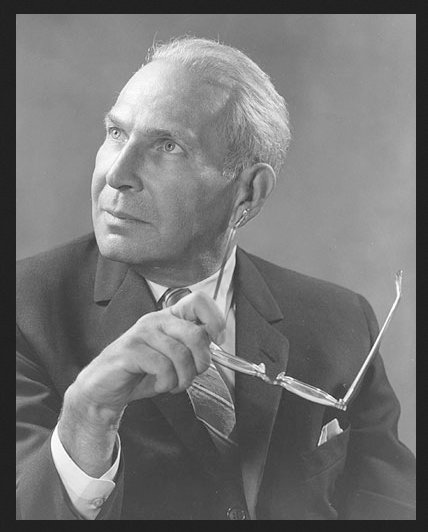

|
Marcel
Dick (August 28, 1898 - December 13, 1991)
1962 Cleveland Arts Prize For Music
Marcel Dick gained international renown during his performing career with major European and American orchestras and string quartets. When he was named head of the graduate department of theory and composition at the Cleveland Institute of Music, however, he put down his viola forever and forged a second career as composer, teacher and conductor. Born August 28, 1898, into a wealthy Jewish family in Miskolc, Hungary, Dick made his debut playing a violin recital at age six—before he learned to read music. Five years later, he entered the Royal Academy in Budapest, where he studied violin with Joseph Bloch and Rezsö Kemény and theory and composition with Victor Herzfeld and Zoltán Kodály. While still in his teens, he earned a degree in violin and was named Professor of Music. Following army service during World War I, he joined the violin section of the Budapest Opera and Budapest Philharmonic. In 1921, he emigrated to Vienna, then the European hotbed of innovative musical thought. After a stint as assistant concert-master of the Volksoper, he became principal violist of the Vienna Symphony Orchestra. During his 11-year tenure, he also was violist of the Gottesman and Rosé string quartets. 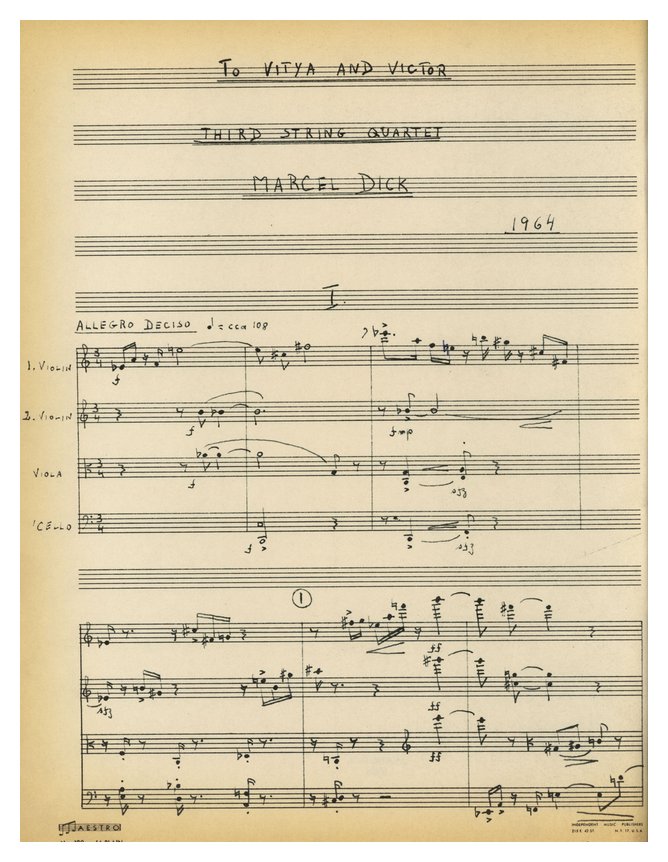
In 1924, Dick was invited to help prepare and perform the world premiere of Arnold Schoenberg’s Serenade, Op. 24, the first 12-tone work ever offered in a public concert. During rehearsals, the exceptional young violist astonished the revolutionary composer by pointing out an error in the score. A valued member of Schoenberg’s inner circle, Dick subsequently co-founded the Kolisch Quartet, an ensemble that specialized in the master’s music and applied his detailed performance practices to classical works. By 1934, anti-Semitism was rampant in Vienna, and Dick was offered the title of “honorary Aryan.” But he was so appalled by the idea that he immediately arranged to emigrate to the United States with his American wife, Ann. He quickly found work, first as a freelance musician in New York, then as principal violist of the Detroit Symphony Orchestra. From 1935 to 1943, he was a member of the Stradivarius Quartet, an affiliate of Harvard University. In 1943, he was named principal violist of the Cleveland Orchestra, a post he held for six years. When Dick left the orchestra to teach full-time, music director George Szell asked him to attend rehearsals weekly and give advice on musical matters. “He took my advice, too,” Dick told a Cleveland Plain Dealer interviewer. Although Dick composed a few pieces before coming to the United States, most of the 29 works in his catalogue were written after 1934. His earliest compositions were influenced by Wagner and Mahler. But after he became a disciple of Schoenberg, he embraced the 12-tone system and made it his own. His music, serious in tone and contrapuntal in texture, unfolds with lyrical expression within traditional forms, including sonata, symphony, variations and fugue. Symphony no. 1 (1948), the first full-length 12-tone symphony, was premiered by the Cleveland Orchestra under the direction of Dimitri Mitropoulos and reviewed by Cleveland News music critic Elmore Bacon, who praised Dick’s “magical gift for orchestration.” Dick conducted the Cleveland Orchestra in premieres of his Adagio and Rondo for Orchestra (1951) and Capriccio for Orchestra (1955). Besides orchestral works, he composed chamber music, songs and instrumental solos. A phrase from his Four Elegies and an Epilogue for unaccompanied cello is quoted in Evensong by Donald Erb, 1966 Cleveland Arts Prize winner and one of Dick’s most accomplished students. In 1990, Dick was honored with a concert of his works at the Cleveland Institute of Music and the publication of a Festschrift containing scholarly essays, tributes and scores. The following year, the composer died at his home in Cleveland Heights. He was 93. At a memorial concert, 1965 Cleveland Arts Prize winner Klaus G. Roy described Dick as “a giant among musicians” and acknowledged his important place in music history, “not as a bystander but as a protagonist.” — Wilma Salisbury [Text only
- photos and link added for this website presentation. BD]
|
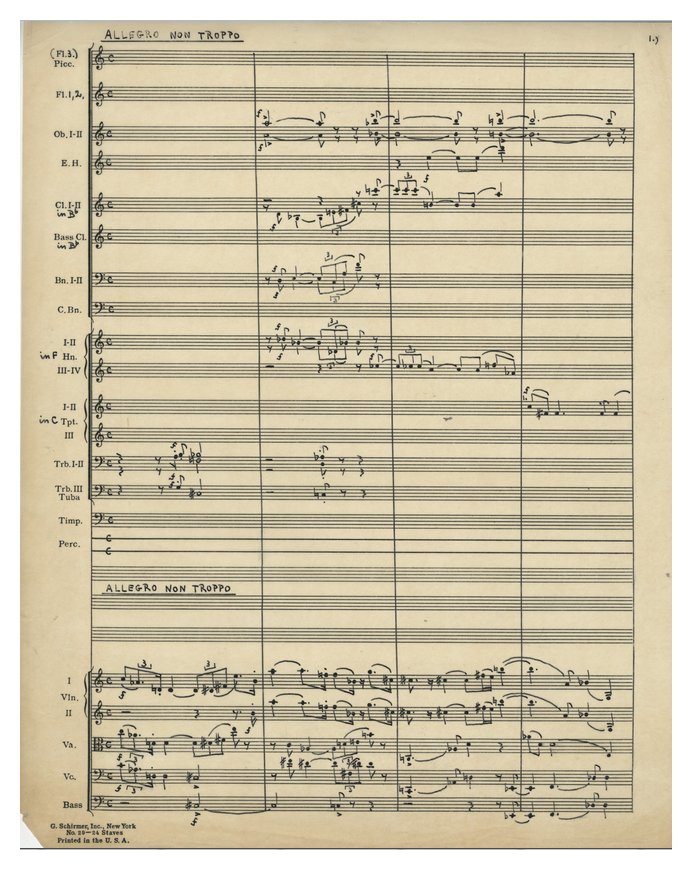
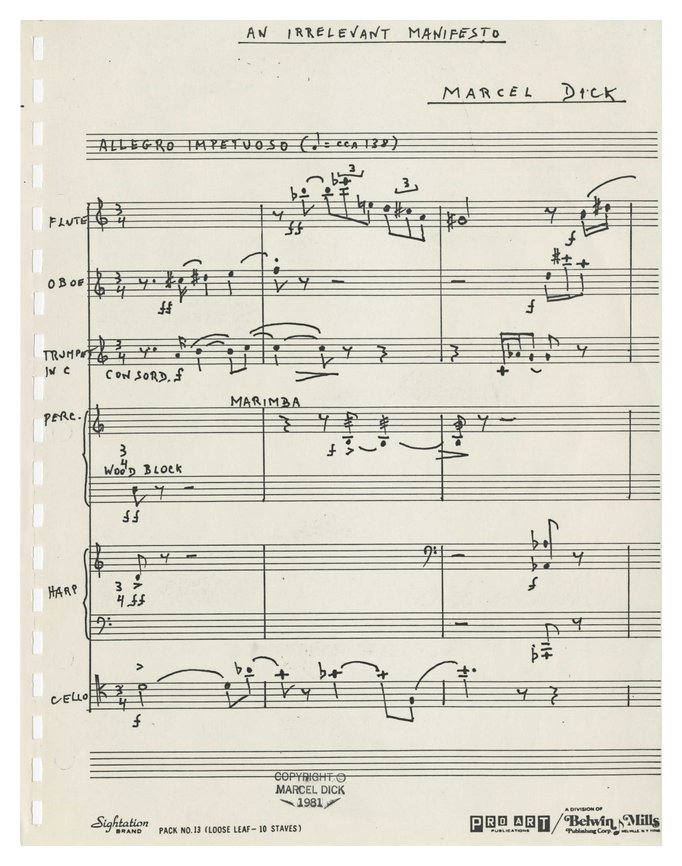 MD:
A conservatory puts a greater emphasis on performing, including composing,
than the university where there is more a theoretical and musicological aspect.
MD:
A conservatory puts a greater emphasis on performing, including composing,
than the university where there is more a theoretical and musicological aspect.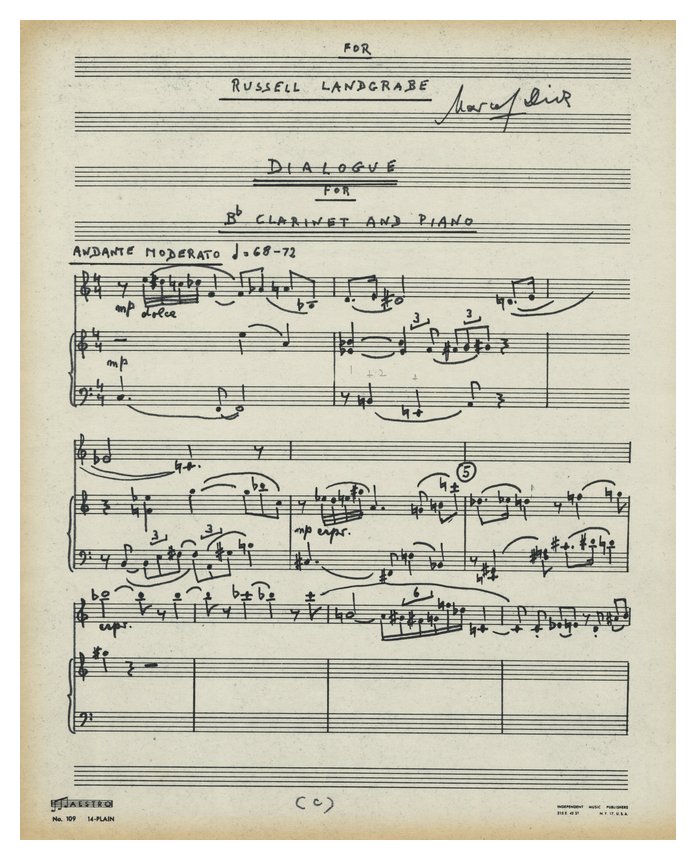 BD:
Do you foresee the use of even more than twelve notes?
BD:
Do you foresee the use of even more than twelve notes?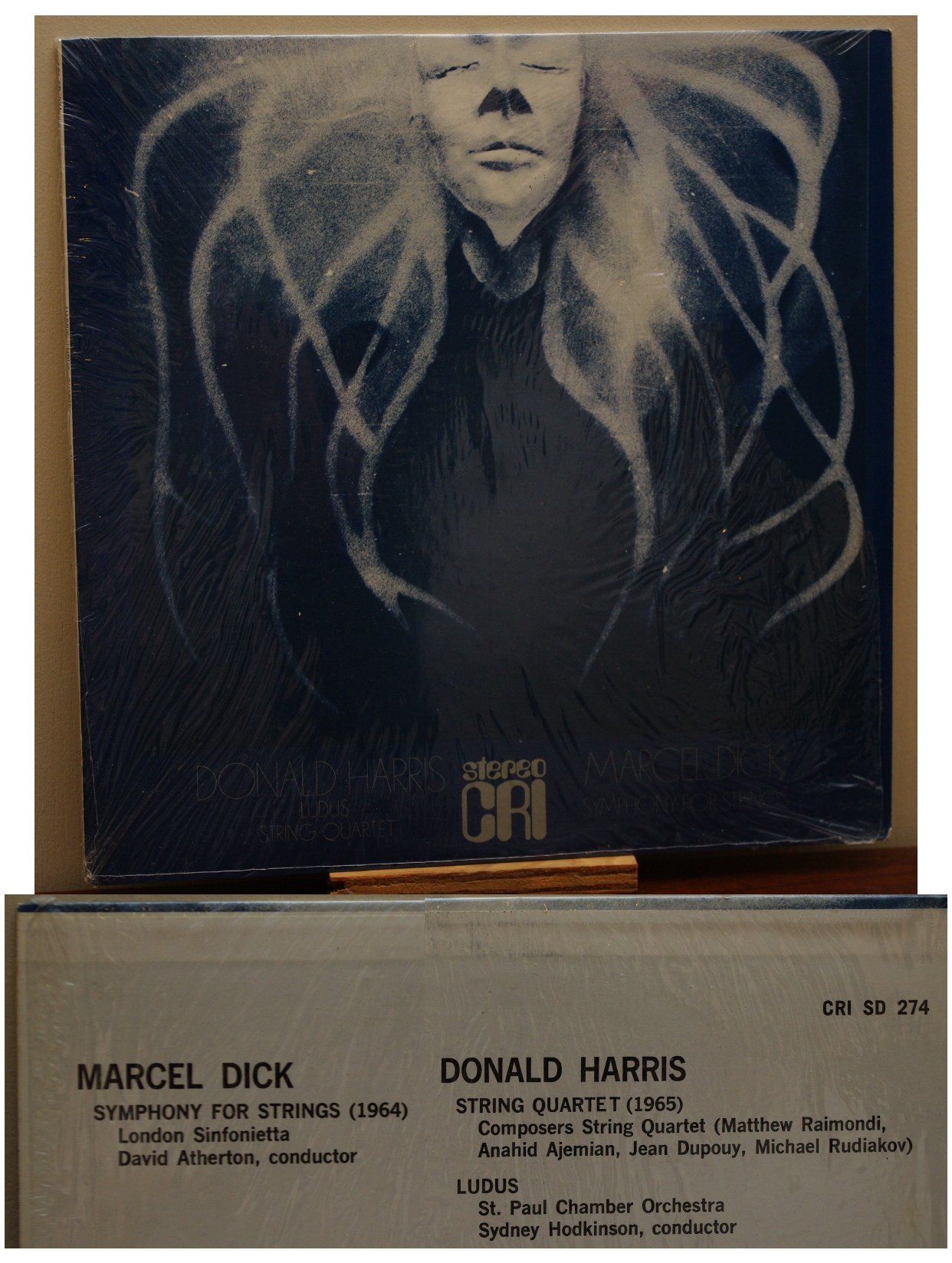
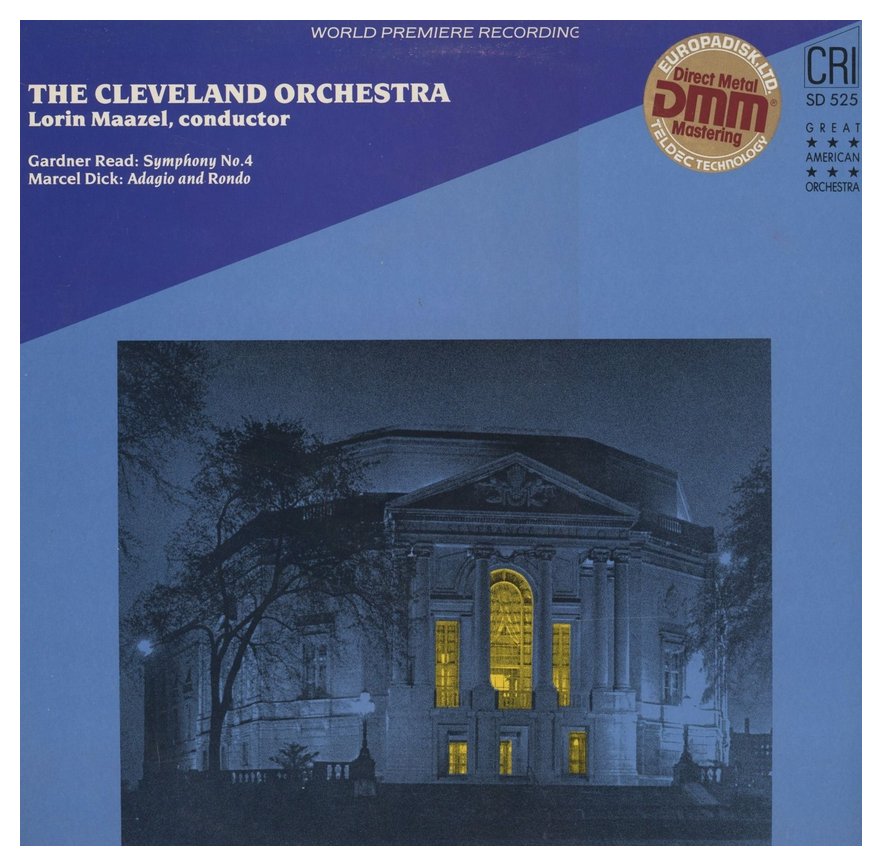
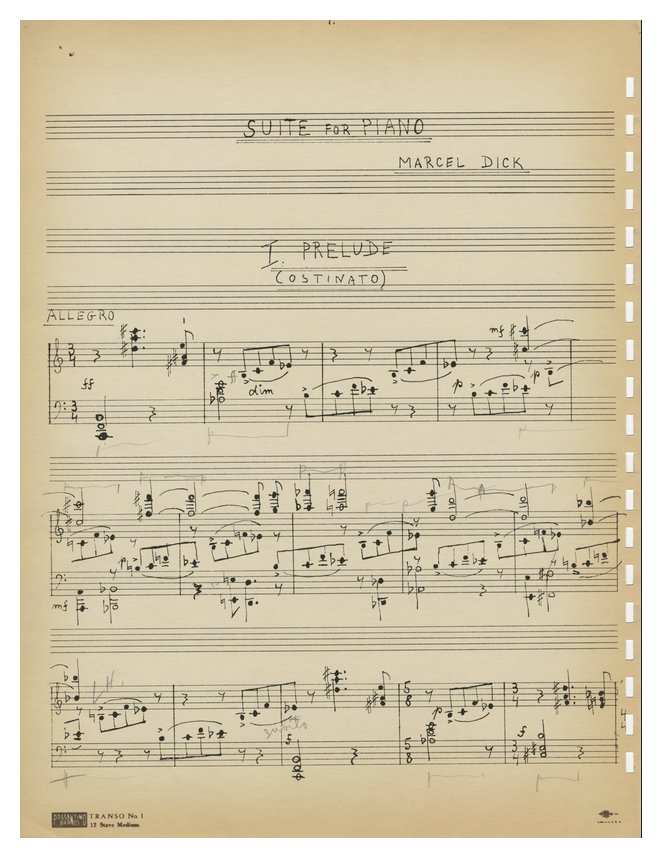 BD:
Who should be the judge of what is great?
BD:
Who should be the judge of what is great?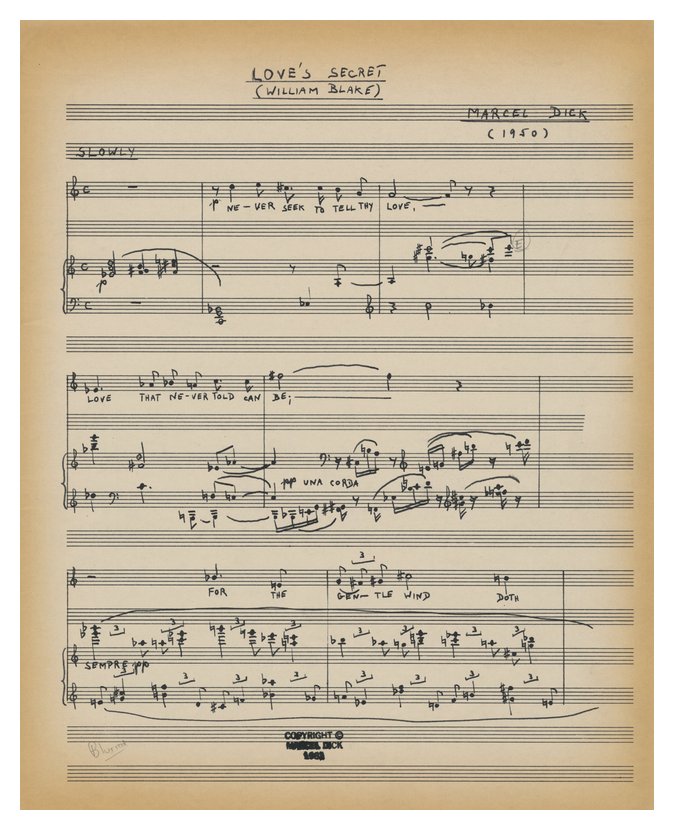 MD:
[Sighs] Oh, my goodness gracious! Nothing! And it
was not his fault. He was a great teacher. I was a lousy student.
Have you got the time and patience to hear the story?
MD:
[Sighs] Oh, my goodness gracious! Nothing! And it
was not his fault. He was a great teacher. I was a lousy student.
Have you got the time and patience to hear the story?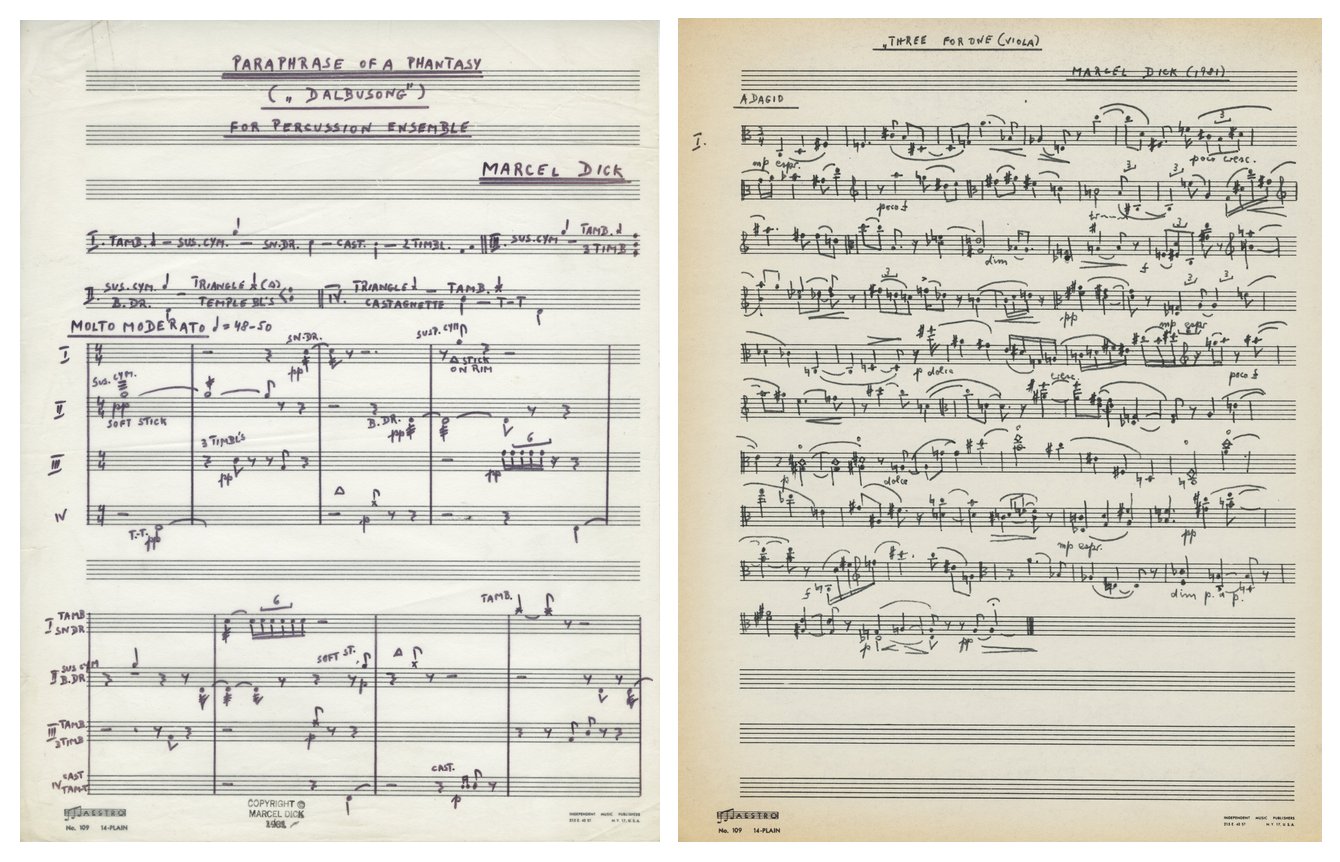
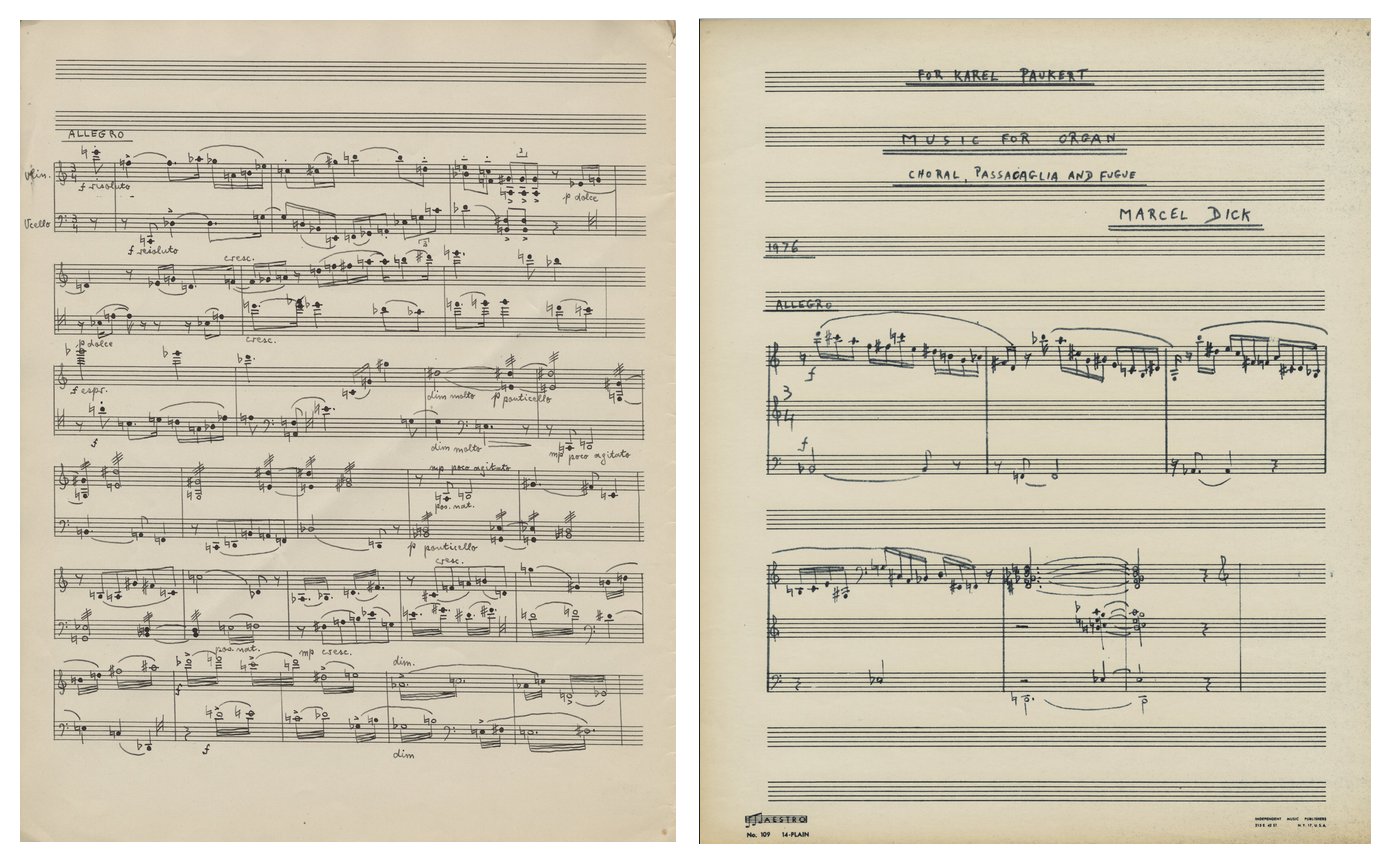
© 1988 Bruce Duffie
This conversation was recorded on the telephone on February 27, 1988. Portions were broadcast on WNIB the following August, and again in 1993 and 1998. This transcription was made in 2016, and posted on this website at that time. My thanks to British soprano Una Barry for her help in preparing this website presentation.
To see a full list (with links) of interviews which have been transcribed and posted on this website, click here.
Award - winning broadcaster Bruce Duffie was with WNIB, Classical 97 in Chicago from 1975 until its final moment as a classical station in February of 2001. His interviews have also appeared in various magazines and journals since 1980, and he now continues his broadcast series on WNUR-FM, as well as on Contemporary Classical Internet Radio.
You are invited to visit his website for more information about his work, including selected transcripts of other interviews, plus a full list of his guests. He would also like to call your attention to the photos and information about his grandfather, who was a pioneer in the automotive field more than a century ago. You may also send him E-Mail with comments, questions and suggestions.